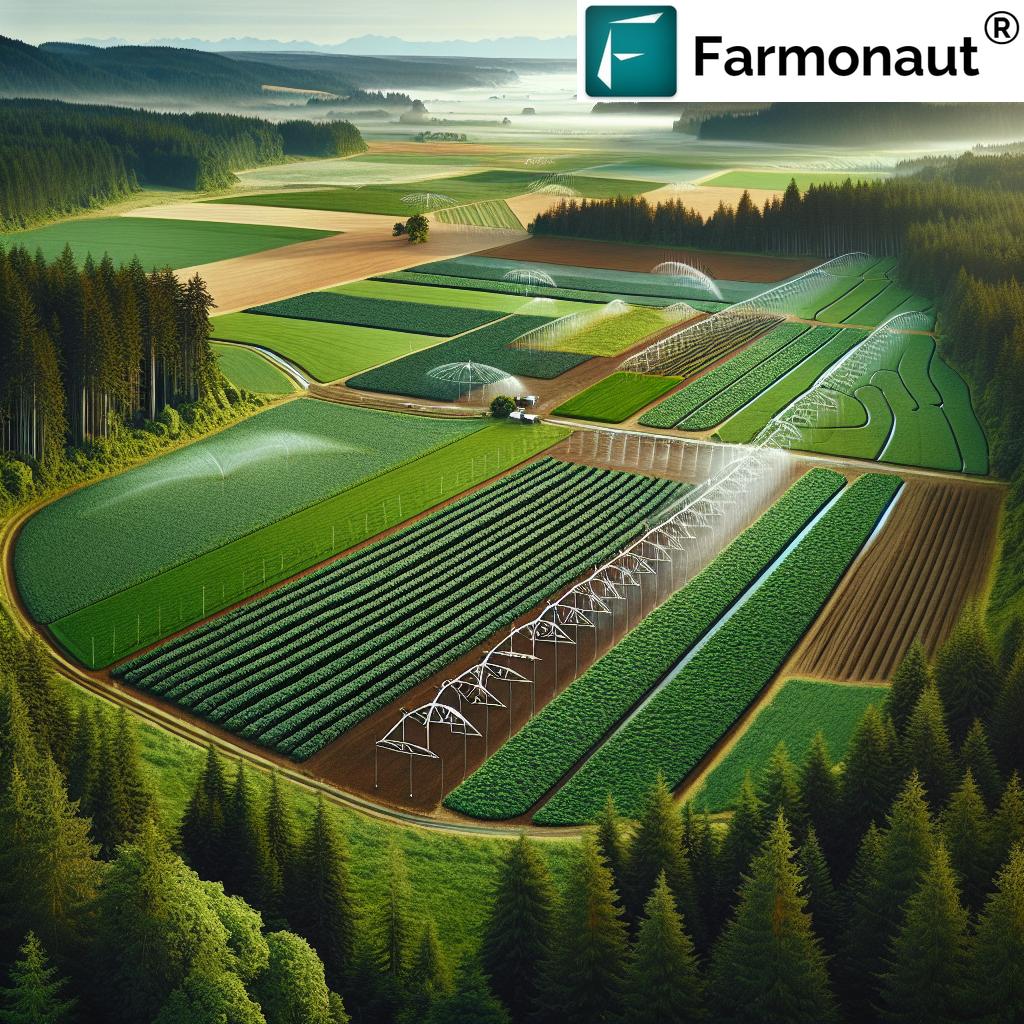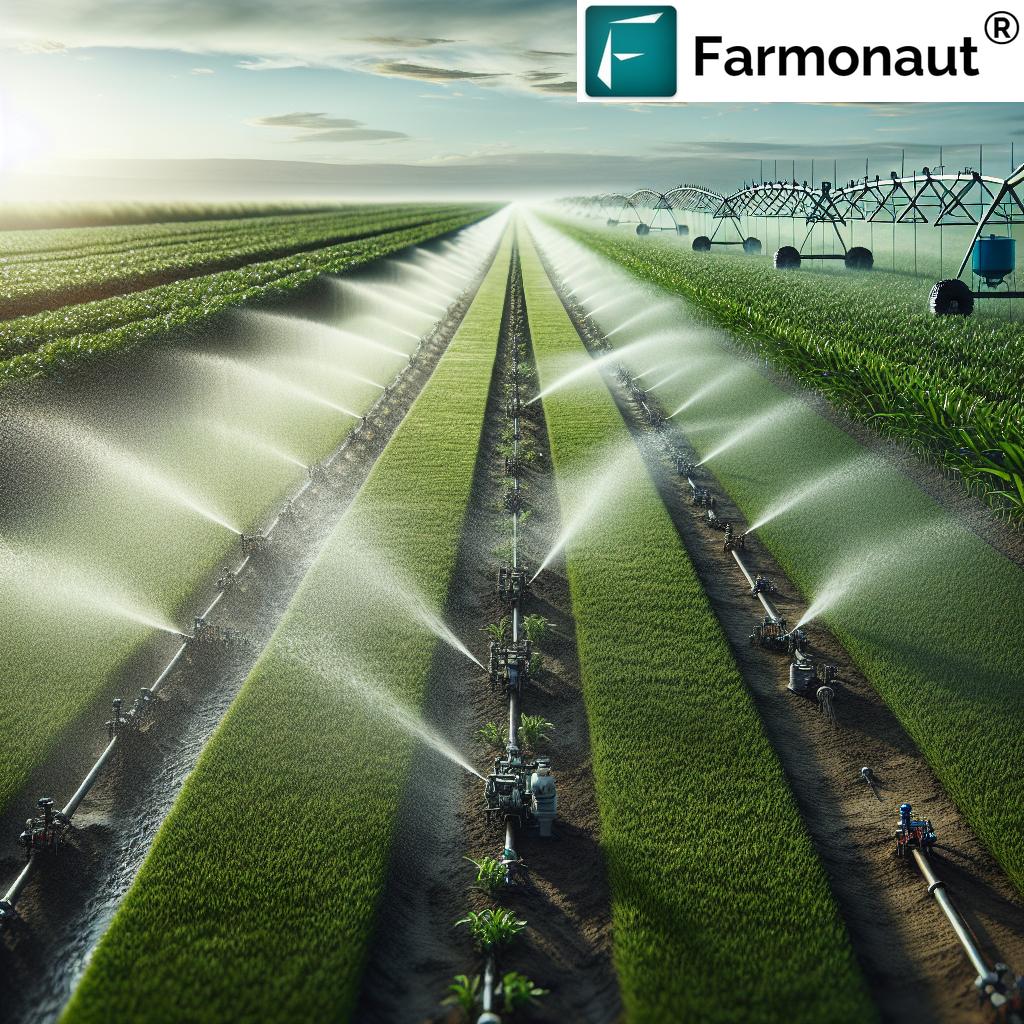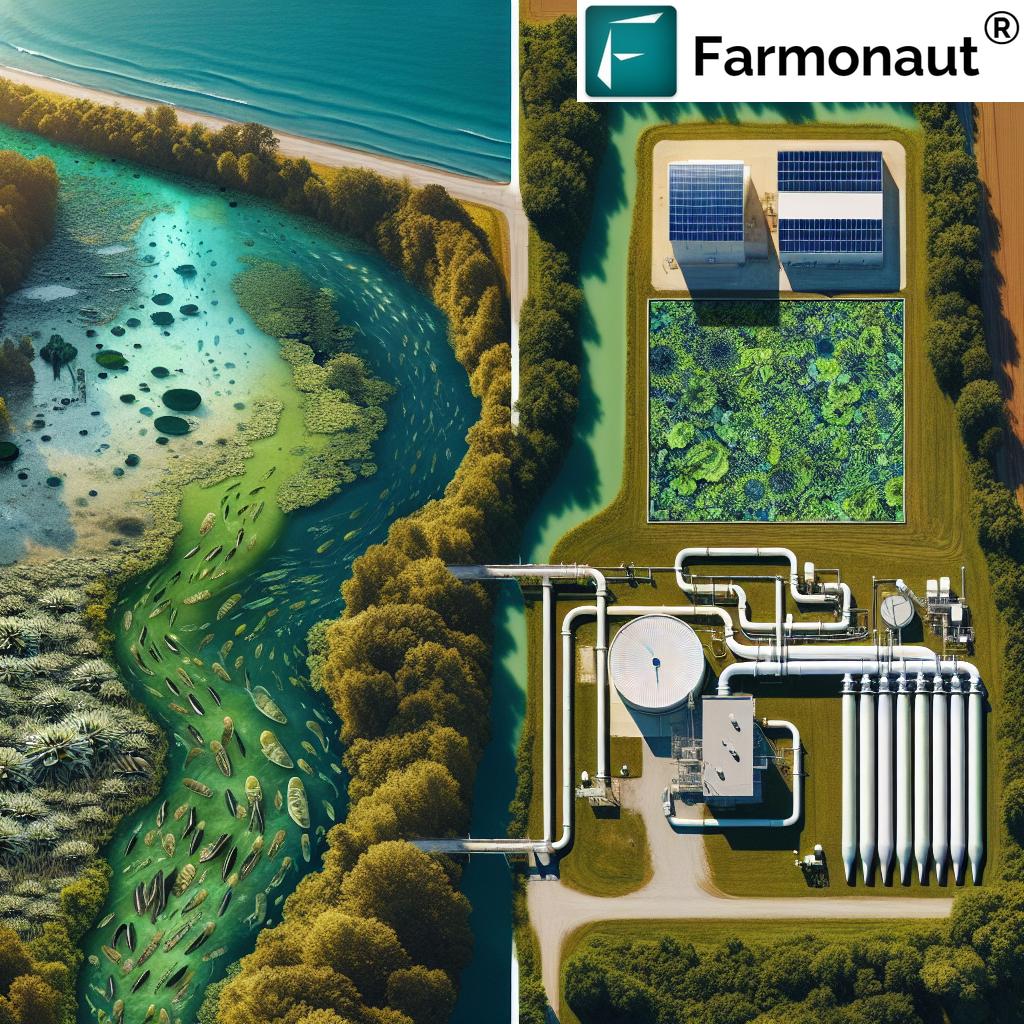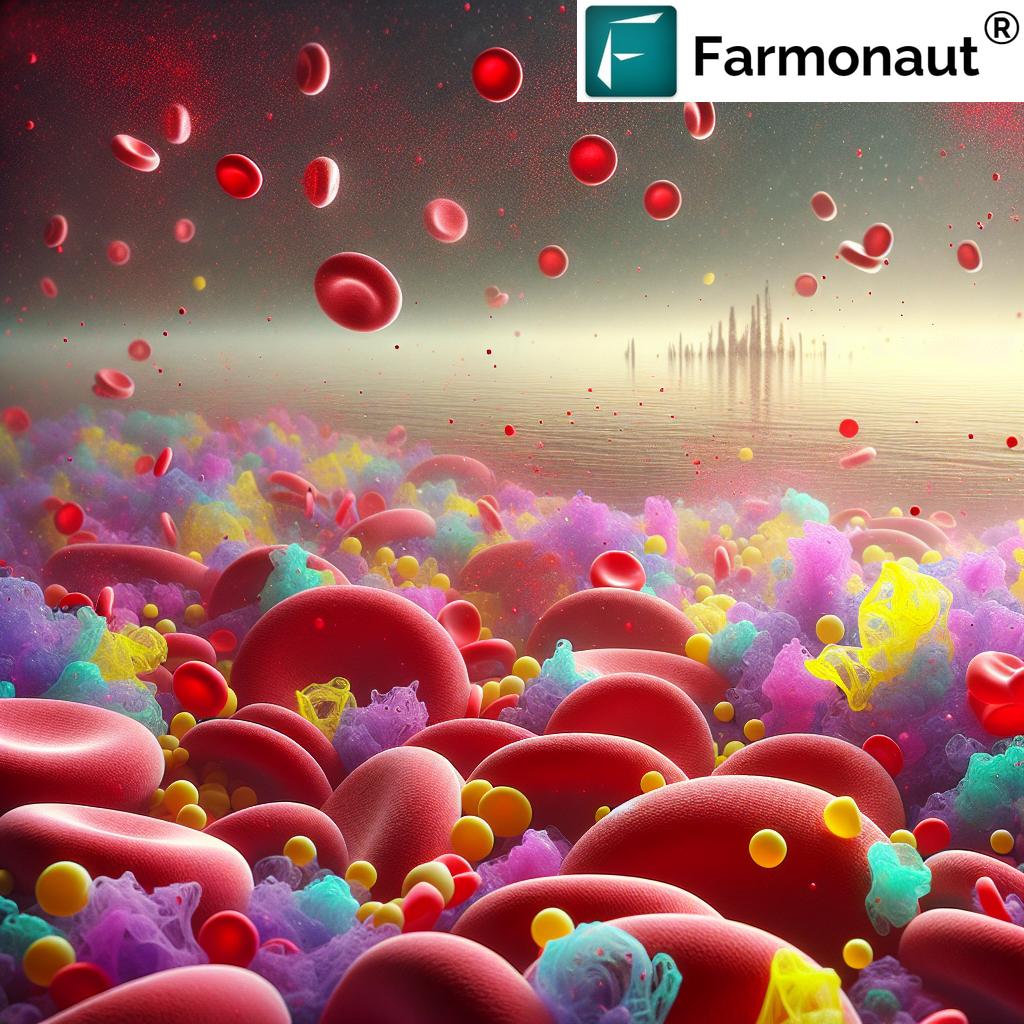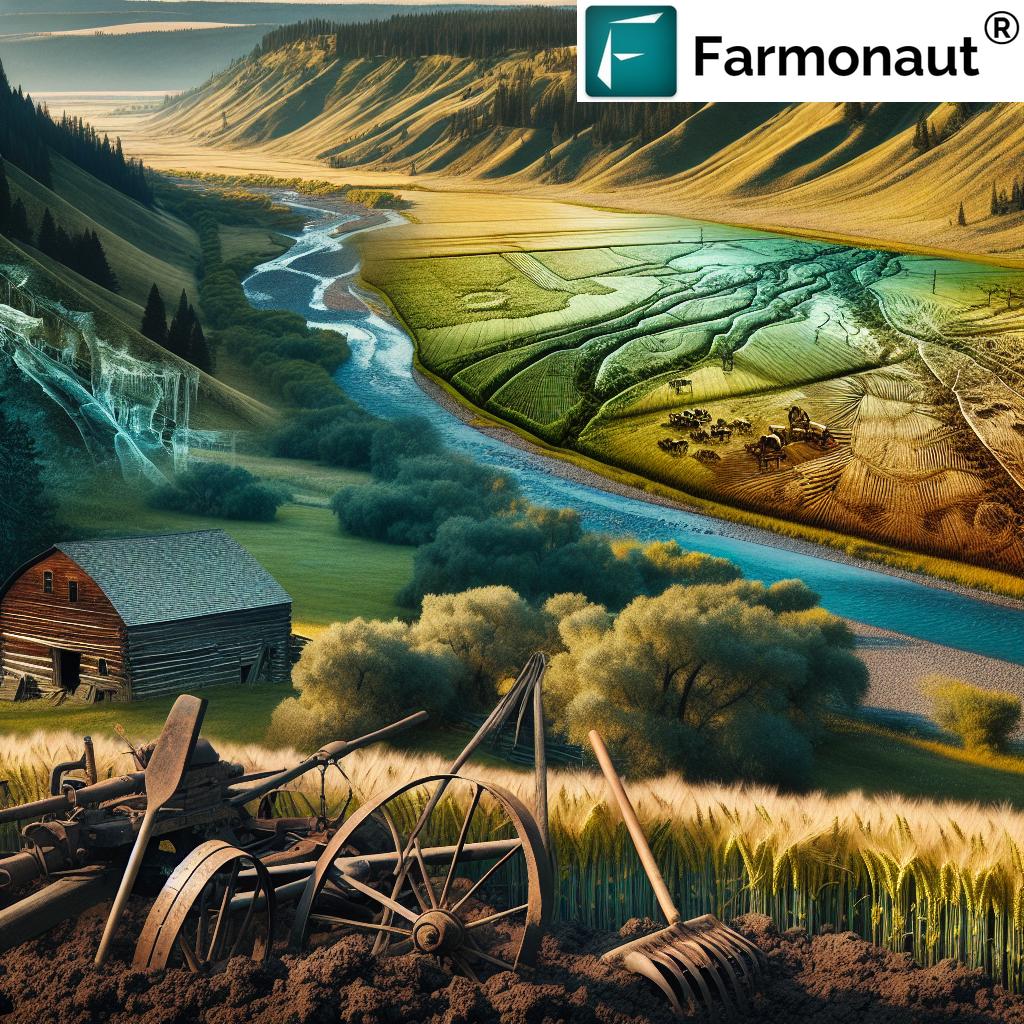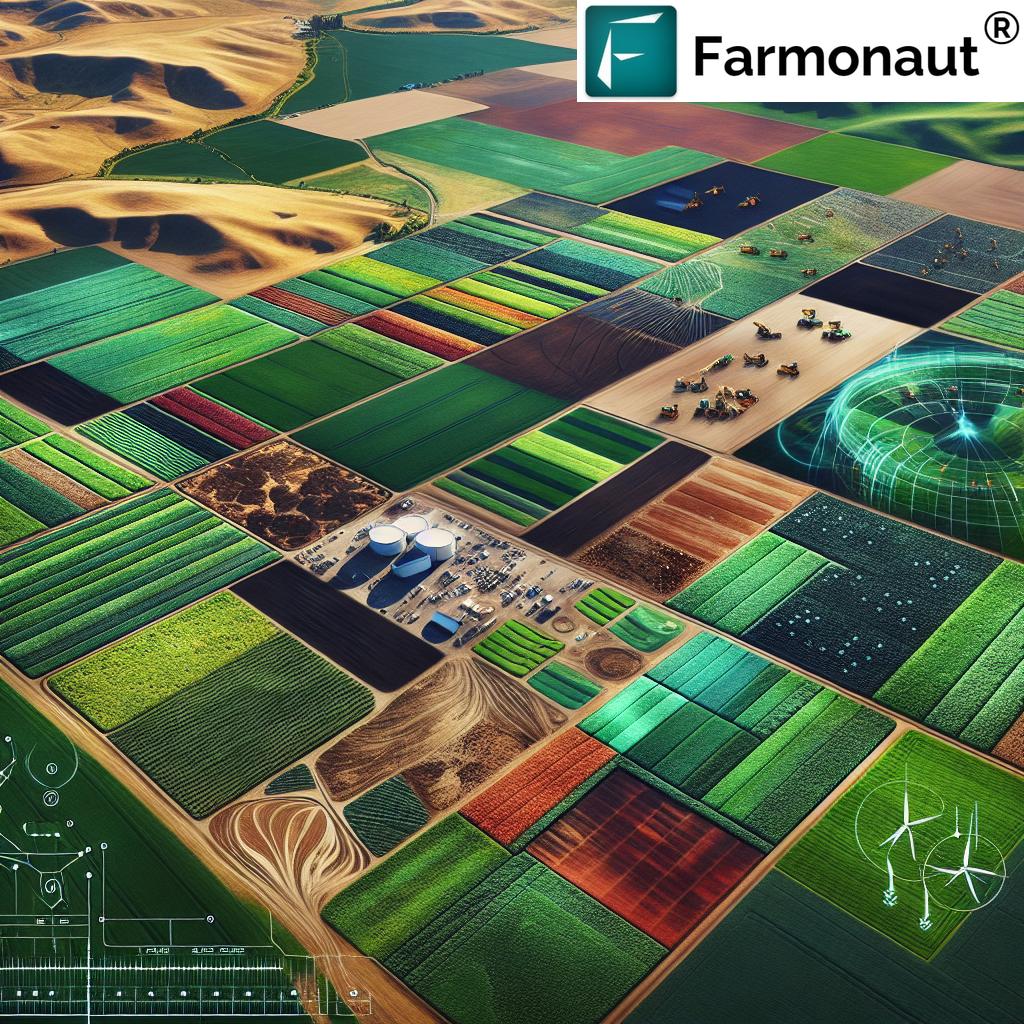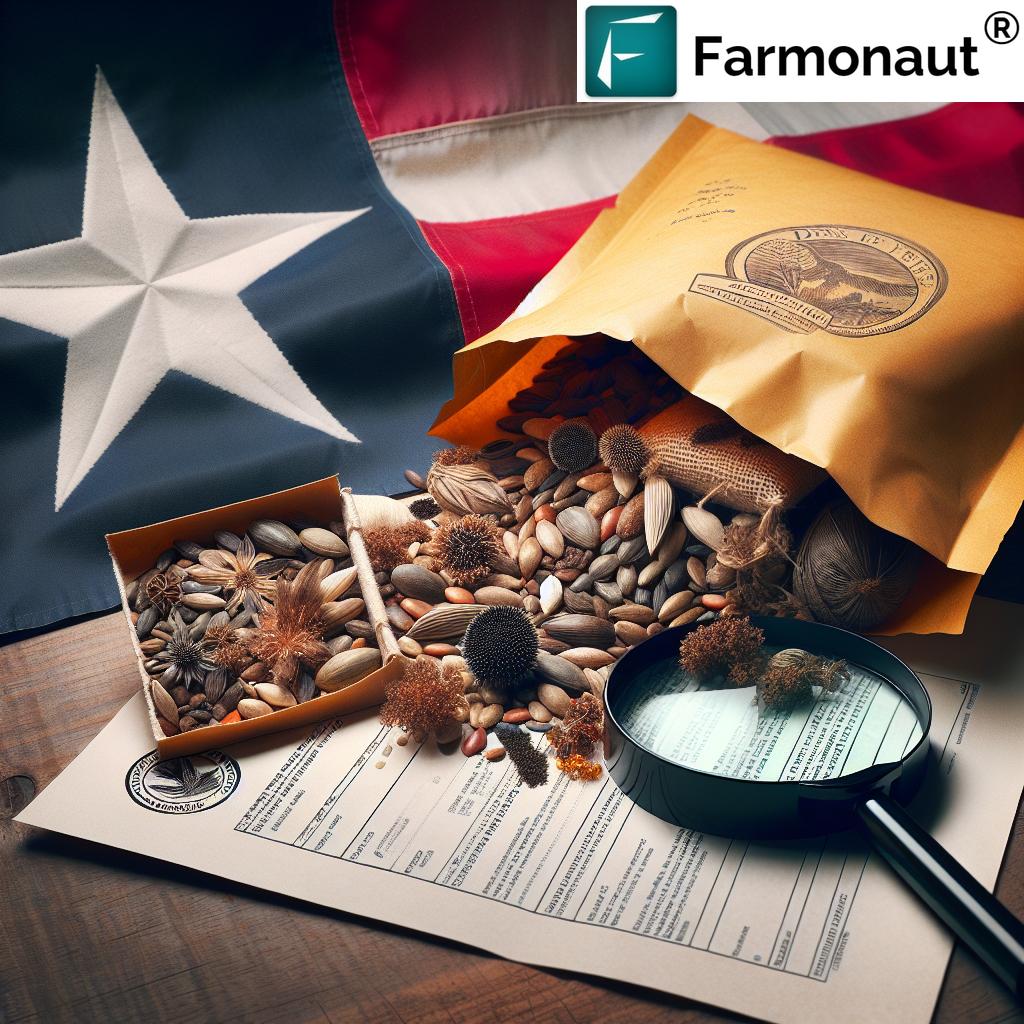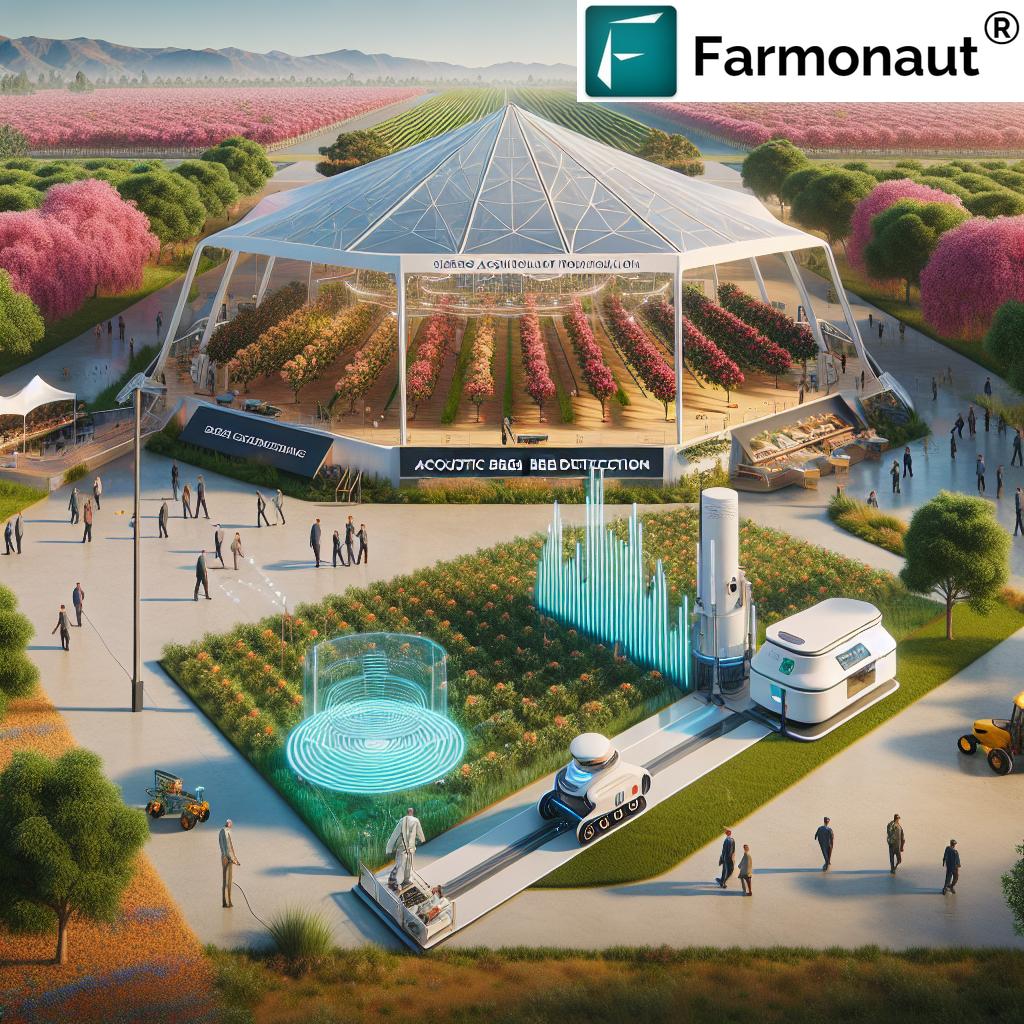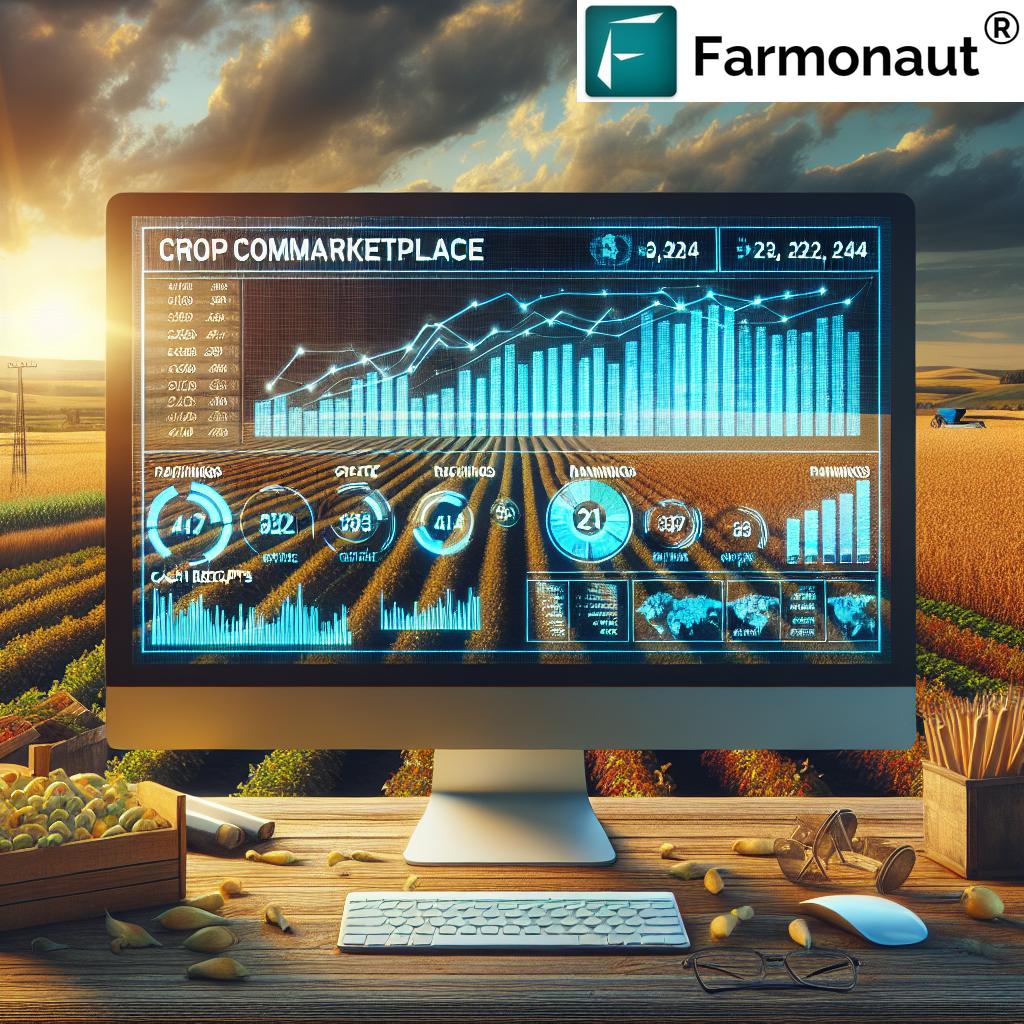Table of Contents
- Summary: Irrigation’s Role in Whatcom County
- Understanding Irrigation Needs in Whatcom County
- Trivia
- Types of Irrigation Systems in Whatcom County
- Comparison Table of Irrigation Systems in Whatcom County
- Best Practices for Irrigation Installation: Whatcom
- Local Irrigation Services in Whatcom County
- Water Conservation and Efficiency in Whatcom
- Sustainable Irrigation Solutions & Smart Technology
- Farmonaut: Innovative Digital Solutions for Irrigation & Resource Management
- Farmonaut Subscription Plans
- FAQ: Irrigation Installation Whatcom
- Conclusion: Efficient Irrigation Practices for a Sustainable Whatcom
Irrigation Installation Whatcom: 7 Shocking Secrets Revealed
Summary: Irrigation’s Role in Whatcom County Agriculture
Irrigation is a cornerstone of successful agriculture, farming, and forestry—particularly in dynamic regions like Whatcom County, Washington, where diverse crops, fertile soils, and varied landscapes support a thriving agricultural industry. Efficient irrigation systems in Whatcom County ensure optimal water distribution, conserve precious resources, and empower sustainable practices for everything from raspberries and dairy operations to lawns, forests, and specialty crops. By implementing technologies and strategies that fit the local soil and climate needs, we can support continued agricultural prosperity, environmental stewardship, and smart resource management throughout the region.
As we dive into the world of irrigation installation in Whatcom, we encounter an array of sustainable irrigation solutions that are not only designed for efficiency and conservation but are also tailored to the specific needs of local agriculture, lawns, and forestry. It’s time to uncover the seven shocking secrets behind achieving optimal water distribution, reducing wastage, and supporting healthy crops and landscapes—from advanced systems like drip irrigation for crops to smart irrigation technology and more.
Understanding Irrigation Needs in Whatcom County
To design and implement efficient irrigation systems in Whatcom County, we must begin by understanding the unique needs and characteristics of the region. Whatcom County, positioned in the northwestern corner of Washington State, is blessed with rich alluvial soils, a moderate maritime climate, and a long growing season. These qualities contribute to a robust agricultural sector—from world-famous raspberry fields to expansive dairy pastures and thriving forestry operations.
- Raspberry Capital: Whatcom County produces a large portion of the nation’s raspberries—requiring careful soil moisture management and consistent water delivery.
- Dairy & Forage Production: Supporting the region’s strong dairy industry means maintaining lush, healthy pastures through efficient irrigation practices.
- Forestry & Conservation: With vast managed forests, irrigation installation services in Whatcom emphasize both resource conservation and landscape sustainability.
- Soil & Climate Diversity: The area’s different soil types (from sandy loams to silts) and microclimates necessitate tailored irrigation solutions for various crops and operations.
By appreciating these local factors, we can implement optimal systems that provide customized, efficient water distribution, minimize evaporation and runoff, and ultimately ensure sustainable agricultural water conservation across Whatcom County’s diverse landscapes.
Types of Irrigation Systems in Whatcom County
When implementing or upgrading irrigation systems in Whatcom County, it’s essential that we select the most effective method for each site, crop, or landscape. The right choice is determined by soil type, topography, water availability, and the needs of the crops. Let’s break down the primary types of irrigation systems we employ across Whatcom’s fields, pastures, lawns, and forests.
-
Drip Irrigation for Crops
- How it Works: Delivers water directly to plant roots through a network of tubes and emitters.
- Best For: Row crops (like berries), orchards, and landscapes needing precise water control.
- Benefits: Minimizes evaporation and runoff, reduces weed growth, supports sustainable irrigation solutions.
-
Sprinkler Systems for Lawns and Fields
- How it Works: Sprinklers distribute water in the air, emulating rainfall over large areas.
- Best For: Lawns, pastures, and some field crops needing periodic saturation.
- Benefits: Flexible, easily automated, and can be adapted for variable topography.
-
Surface Irrigation
- How it Works: Water flows by gravity over flat terrains—flood or furrow style.
- Best For: Grains, some vegetables, and pastureland with level fields.
- Benefits: Simple design and implementation, low energy requirement.
-
Subsurface Irrigation
- How it Works: Water is applied below the soil surface to root zones via buried tubes.
- Best For: High-value specialty crops, orchards, and areas with risk of evaporation.
- Benefits: Reduces evaporation, surface runoff, and weed pressure while improving uniformity.
-
Smart Automated Systems
- How it Works: Integrates smart irrigation technology using sensors, controllers, and scheduling tools (often weather and soil data driven).
- Best For: Any property seeking maximum efficiency, flexibility, and water savings.
- Benefits: Adjusts water use in real time; ideal for agricultural water conservation and reducing costs.
Our choice of irrigation system design shapes everything from resource use and crop yield to labor requirements and overall sustainability.
Comparison Table of Irrigation Systems in Whatcom County
| Type of Irrigation System | Initial Installation Cost (Estimated) | Annual Water Savings (%) | Suitability (Lawns, Crops, Both) | Estimated Lifespan (Years) | Sustainability Score (1-10) |
|---|---|---|---|---|---|
| Drip Irrigation | $$ | 30-60% | Crops | 10-15 | 9 |
| Sprinkler Systems | $$ | 20-40% | Both | 10-12 | 7 |
| Surface Irrigation | $ | 0-10% | Crops | 8-10 | 4 |
| Subsurface Irrigation | $$$ | 50-70% | Crops | 12-20 | 10 |
| Smart Automated Systems | $$$ | 30-70% | Both | 12-18 | 10 |
Legend: $ = Low, $$ = Moderate, $$$ = High Initial Cost. Sustainability Score considers efficiency, resource use, environmental impact.
Best Practices for Irrigation Installation: Whatcom Insights
Implementing efficient irrigation installation in Whatcom County is about more than simply laying pipes or installing sprinklers; it’s a comprehensive process centered around precision, sustainability, and tailored solutions. Here are the key best practices we recommend for maximizing returns—both economically and ecologically:
-
Site Assessment and Soil Analysis
Before any installation or system design, we firmly commit to a thorough evaluation of soil type, field topography, and specific crop requirements. This phase informs every aspect of the project—from emitter spacing and flow rates to tile placement. -
Irrigation System Design
- We ensure uniform water distribution by carefully planning emitter location and spacing, flow calculations, and matching system capacity to soil and crop needs.
- Design choices are shaped by the intended application—from drip lines for berry crops to sprinklers for lawns and subsurface systems for root-focused irrigation.
-
Professional Installation
Hiring skilled professionals ensures compliance with local regulations, optimal system function, and correct installation of all hardware (including backflow preventers, controllers, and monitoring tools). -
Smart Scheduling & Automation
Integrating smart controllers and weather-based automation helps us adapt watering schedules in real time. This approach—particularly powerful in Whatcom’s unpredictable climate—can drastically reduce wasted water. -
Ongoing Maintenance, Audits, and Upgrades
After system deployment, we recommend routine maintenance: inspecting for clogs, leaks, or uneven distribution, scheduling regular system audits, and promptly repairing faults. Ongoing monitoring improves lifespan and maintains efficiency. -
Water Source & Conservation Planning
Considering rainwater harvesting for agriculture can supplement traditional water sources and further boost sustainability. We advocate integrating rainwater catchment and storage systems wherever feasible.
Each step supports resource conservation, environmental sustainability, and system reliability for farms, lawns, and forestry throughout Whatcom County.
Local Irrigation Services in Whatcom County
To turn plans into reality, we’re fortunate to benefit from several specialized irrigation service providers in Whatcom County. These local companies offer everything from design and installation to maintenance and audits tailored to local crop and landscape needs.
-
Puget Construction and Landscape:
- Custom irrigation system design, professional installation, and regular maintenance service.
- Winterization, backflow testing, and compliance with Washington state regulations.
-
Dependable Yard Care:
- Offers irrigation audits, repairs, and seasonal maintenance. Identify system inefficiencies, leaks, clogged heads, and upgrade for greater efficiency.
-
Whatcom Lawns:
- Specializes in residential and commercial irrigation systems, with a focus on efficient water distribution for lawns and fields.
- Promotes water-saving technologies and periodic smart upgrades.
By working with certified professionals and performing regular audits, we ensure optimal irrigation installation and long-term system success throughout the region.
Water Conservation and Efficiency in Whatcom County
Given the growing importance of agricultural water conservation and the environmental pressures facing Washington’s farmlands, efficient irrigation practices have never been more vital in Whatcom County. We have a collective responsibility to reduce overall water usage, increase crop resilience, and mitigate the impacts of drought or water scarcity.
-
Smart Controllers and Schedules
- Smart irrigation controllers automatically adjust watering schedules based on weather, crop needs, and soil moisture data.
- Integrate with digital apps (like Farmonaut – for soil moisture management, crop monitoring, and scheduling optimization).
-
Frequent Audits, Inspections, and Upgrades
- Periodic system audits and maintenance catch leaks, clogs, or outdated components before significant water is wasted.
- Partner services like Dependable Yard Care – Irrigation Audits ensure optimal system efficiency.
-
Soil Management Practices
- Incorporating organic matter (compost, manure) and no-till farming practices enhance soil structure and water retention.
- Reducing tillage preserves soil moisture and reduces irrigation requirements.
-
Rainwater Harvesting for Agriculture
- Install rainwater catchment systems for crop, lawn, or forestry irrigation. Less reliance on municipal or well water means resource conservation and cost reduction.
- Learn more about rainwater harvesting for agriculture at WSU Extension.
Through these measures, Whatcom County farms and landowners can save thousands of gallons per acre annually, lower costs, and enhance the sustainability of their operations. Smart irrigation technology and digital solutions make conservation achievable for everyone.
Sustainable Irrigation Solutions & Smart Technology in Whatcom
Embracing sustainable irrigation solutions in Whatcom County means more than just saving water—it’s a holistic approach that enhances yields, protects the environment, and aligns with future-focused agriculture. Here are the emerging trends and technological advancements shaping our sustainable journey:
-
Rainwater Harvesting & Resource Diversification
- Collecting and storing rainwater supplies an alternative—and renewable—water source for crops, lawns, and forestry operations.
- This practice reduces dependency on municipal or well water and buffers against drought.
-
AI, Machine Learning & Predictive Control
- Advanced irrigation technologies now harness real-time sensor data, satellite imagery, and AI-powered controls.
- These tools allow us to predict field water needs, optimize schedules, and reduce both evaporation and runoff—all with minimal manual intervention.
-
Digital Resource Management Tools
- Platforms like Farmonaut provide satellite-based crop health monitoring, soil moisture analytics, and AI advisory for resource management.
- Digital tracking ensures that every drop of irrigation water is accounted for, and resources are allocated efficiently.
Sustainability is not just about using less water—but about using it wisely and creating resilient, productive, and environmentally sound agricultural systems for Whatcom County’s future.
Farmonaut: Innovative Digital Solutions for Irrigation & Resource Management
In today’s fast-evolving world of precision agriculture and resource conservation, Farmonaut stands at the cutting edge by making advanced, satellite-powered digital solutions accessible to farmers and agribusinesses of all sizes. Here’s how Farmonaut empowers irrigation management and sustainable practices in Whatcom County and beyond:
-
Satellite-Based Crop Health & Soil Moisture Monitoring
Using multispectral satellite imagery, Farmonaut tracks field-scale crop health (NDVI), soil moisture levels, and vegetation stress. This real-time data helps us:- Optimize irrigation schedules—applying water only where, when, and as much as needed
- Reduce inputs (like fertilizers and water), minimize wastage, and boost yields
- Track carbon footprint—evaluate the environmental impact of our farming and forestry operations, and take steps to become more sustainable
-
AI-Powered Farm Advisory & Crop Management
Farmonaut’s platform includes Jeevn AI—a personalized farm advisory system that analyzes satellite and weather data, providing tailored recommendations for irrigation, pest management, and more. -
Blockchain-Based Traceability
Farmonaut enables secure and transparent crop origin traceability for corporate clients and exporters. This verifies product quality, safety, and sustainability for end-users. -
Resource, Fleet, and Landscape Management
Larger farming, forestry, or landscaping operations can benefit from fleet and resource management tools—catering to large scale irrigation scheduling, logistics, and cost efficiency. -
Integration & Flexibility for All Users
Farmonaut is available on Web, Android, iOS, and via simple API and developer documentation for seamless integration with your agriculture technology stack.
Whether you manage a Whatcom County berry field, a dairy pasture, a forest, or a landscaping business, Farmonaut arms you with reliable, affordable, and actionable data—putting the power of precision irrigation management firmly in your hands.
Farmonaut Subscription Plans
Take control of your farm’s water, resources, and productivity—select the Farmonaut plan that matches your scale and needs:
Tip: Farmonaut empowers both smallholder and large-scale operations—see also large scale farm management features and crop loan & insurance support to further streamline your Whatcom agricultural or forestry business.
FAQ: Irrigation Installation Whatcom
What are the main types of irrigation systems in Whatcom County?
The primary irrigation systems used in Whatcom County include drip irrigation (for crops and orchards), sprinkler systems (for lawns, pastures, and fields), surface irrigation (for large level terrains), subsurface irrigation (buried tubes for high-value crops), and smart automated irrigation systems (using controllers, sensors, and satellite-based analytics).
How does drip irrigation improve efficiency?
Drip irrigation for crops delivers water directly to plant roots, significantly minimizing evaporation and reducing water runoff. This approach is considered one of the most efficient irrigation practices, especially for berries, fruit trees, and specialty vegetables in Whatcom.
Are there government regulations for irrigation installation in Whatcom?
Yes, irrigation installation must comply with state and county water regulations—including proper backflow prevention, permitting (where required), and environmental safety. Hiring certified local services ensures compliance.
How can I tell if my irrigation system is wasting water?
Early signs include uneven water distribution, leaks, clogged emitters or heads, and visible runoff. We recommend periodic system audits (like those offered by local specialists) and using digital monitoring platforms to catch inefficiencies.
What are some examples of sustainable irrigation practices?
Best practices include using smart controllers, integrating rainwater harvesting, employing soil moisture management tools, and maintaining all equipment for maximum efficiency.
Can I integrate digital irrigation management with other farm systems?
Yes—Farmonaut’s platform, for example, is integrated across web, mobile, and via API so you can connect crop health, soil moisture, irrigation schedules, and resource management all in one place. Learn more about Farmonaut’s satellite API.
How often should irrigation systems be maintained?
For best results, systems should be inspected at least once per season. Check for leaks, replace worn components, and schedule annual audits to identify improvement opportunities.
Does efficient irrigation save money?
Absolutely—well-designed, maintained, and technologically integrated systems reduce water bills, lower energy use, increase crop yields, and protect your farm’s bottom line.
Conclusion: Efficient Irrigation Practices for a Sustainable Whatcom
Our journey into Irrigation Installation Whatcom reveals that smart, sustainable, and locally adapted solutions are the backbone of agricultural productivity, water conservation, and eco-friendly operations in Washington State. By understanding local needs, embracing innovative irrigation system design, partnering with reliable professionals, and leveraging the digital revolution provided by companies like Farmonaut, we can elevate local agriculture to new standards of efficiency, profitability, and sustainability.
Whether you’re growing berries, managing lawns, sustaining forests, or running a diversified farm, the future of irrigation in Whatcom County is one of precision, resourcefulness, and environmental responsibility. Join us in adopting the best practices, technologies, and conservation strategies to ensure that our fields and forests remain vibrant for generations to come.
Ready for data-driven, sustainable, and future-smart irrigation? Access Farmonaut Now and transform your water management and crop outcomes.





